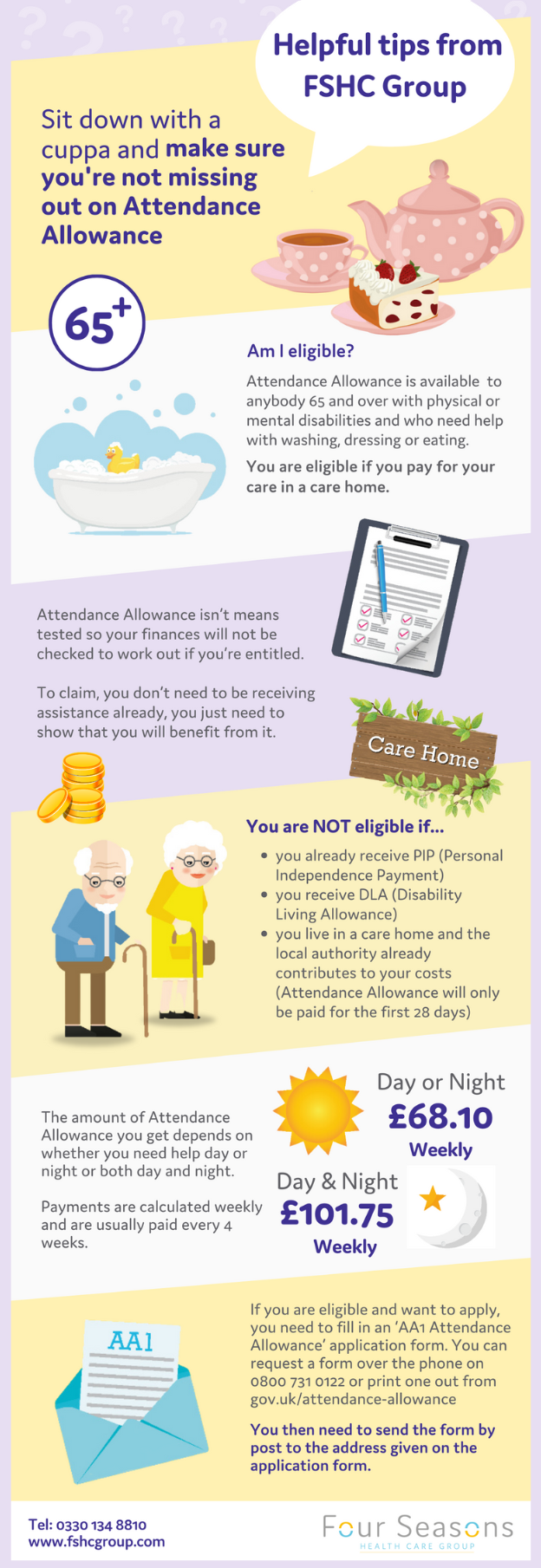Am I Eligible for Attendance Allowance?
Am I eligible?
Attendance Allowance is available to anybody 65 and over with physical or mental disabilities and who need help with washing, dressing or eating. You are eligible for attendance allowance if you pay for your care in a care home.
You are NOT eligible if…
- You already receive Personal Independence Payment (PIP)
- You receive Disability Living Allowance (DLA)
- You live in a care home and the local authority already contributes to your costs (Attendance Allowance will only be paid for the first 28 days)
Attendance Allowance isn’t means tested so your finances won’t be checked to work out if you’re entitled. To claim, you don’t need to be receiving assistance already, you just need to show that you will benefit from it.
How much does Attendance Allowance pay?
- Day or Night: £68.10 Weekly [lower rate]
- Day and Night: £101.75 Weekly [higher rate]
The amount of Attendance Allowance you get depends on whether you need help day or night or both day and night (or are terminally ill). Payments are calculated weekly and usually paid every 4 weeks.
All information contained in this page was correct as at 28/02/2024*

Get in touch
If you have any questions about our care or services, please get in touch below.
Please note that we cannot respond to queries about application process, or current vacant positions. Please visit our careers website for information about working with us or current vacancies.

 Live Chat
Live Chat Find a home
Find a home Enquire now
Enquire now